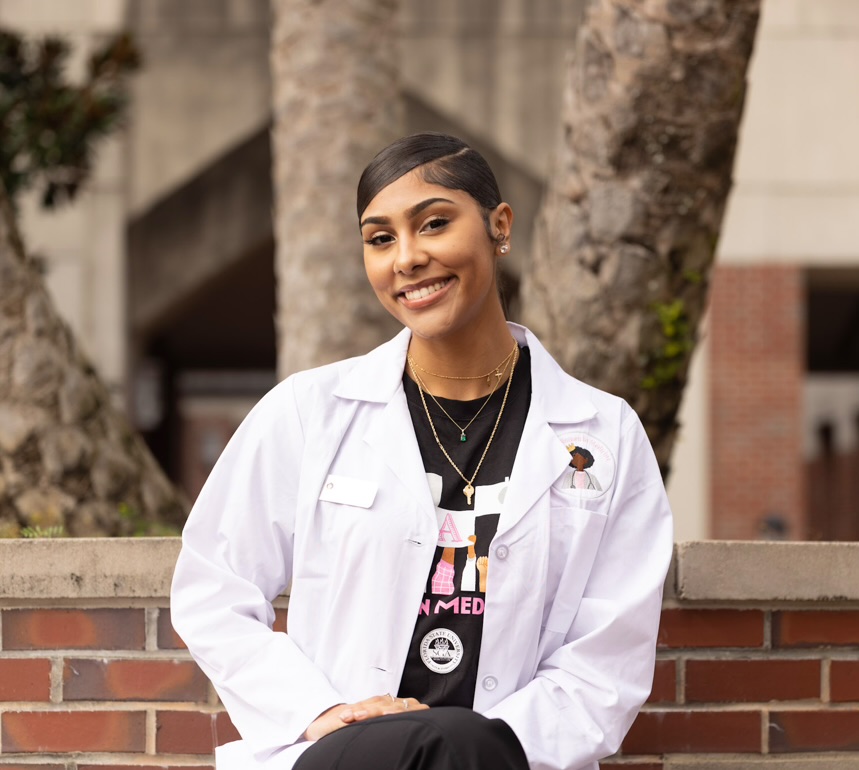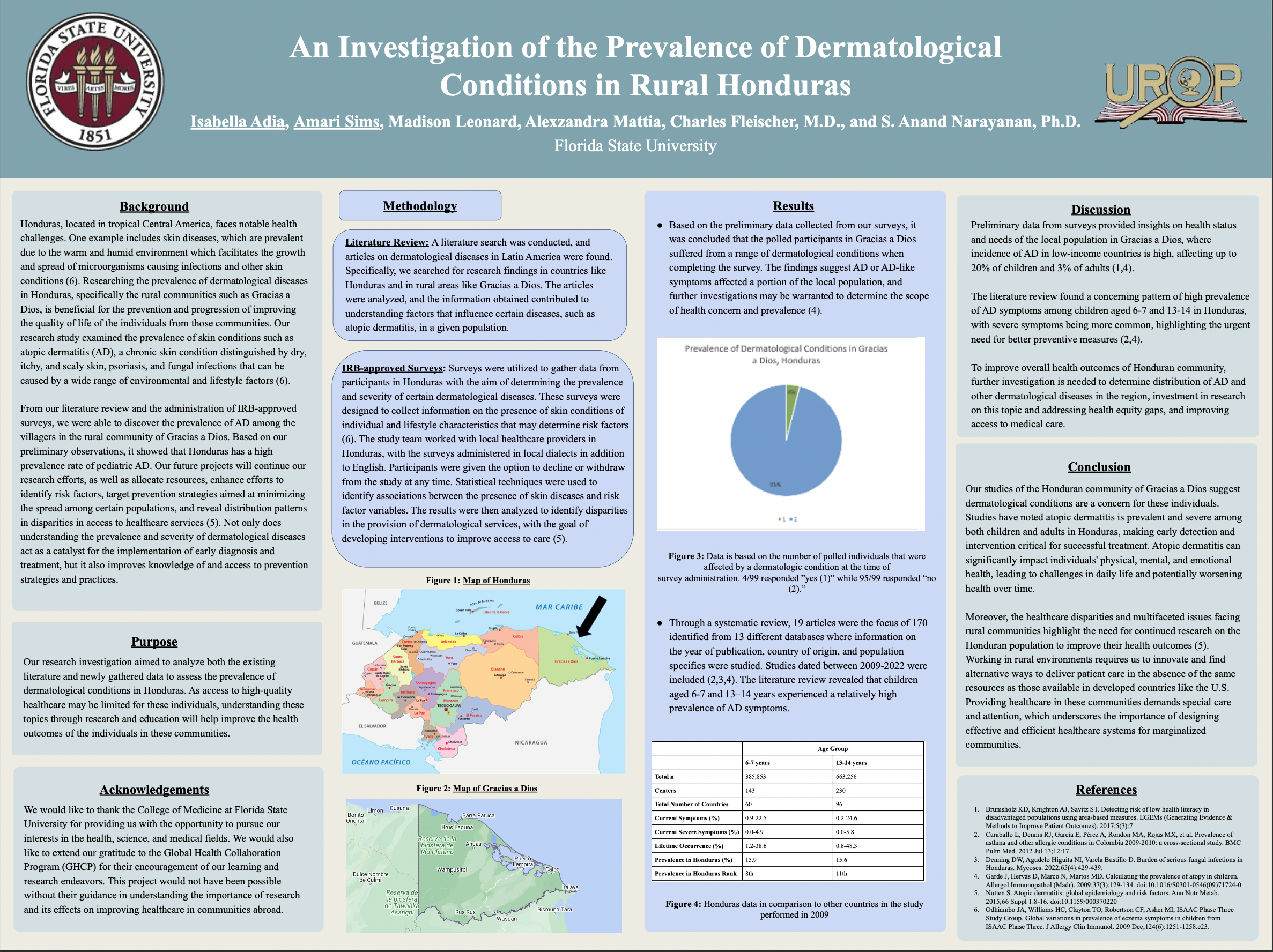Research Symposium
23rd annual Undergraduate Research Symposium, April 6, 2023
Amari Sims Poster Session 3: 2:45 pm - 3:45 pm/ Poster #188

BIO
Amari Sims is a second-year Biological Sciences major and FSU USSTRIDE member. She is an aspiring medical physician pursuing a career in dermatological healthcare for underserved populations, with a focus on minority skincare. Conducting research on the science supporting minority skincare through the UROP program provided an immense amount of resources, knowledge, and experience that has fostered and cultivated an even greater love of science and medicine. Amari has been quite resourceful on her journey to acquire the requisite knowledge while seeking to take full advantage of every available resource and experience to develop the necessary skill set and academic prowess to be admitted into medical school. To this end, her research that was conducted under Madison Leonard, Alexzandra Mattia, Charles Fleischer, M.D., and S. Anand Narayanan, Ph.D. and alongside Isabella Adia, has provided her with a firsthand insight into the challenges and rigor required to fulfill her dreams of performing research and practicing as a dermatologist. This research was a focused investigation of the prevalence of dermatological conditions in rural Honduras which directly aligned with Amari’s future aspirations of providing dermatological healthcare to underserved populations, solidifying and reaffirming her purpose and career goals.
An Investigation of the Prevalence of Dermatological Conditions in Rural Honduras
Authors: Amari Sims, S. Anand Narayanan, Ph.D.Student Major: Biological Sciences
Mentor: S. Anand Narayanan, Ph.D.
Mentor's Department: Nutrition and Integrative Physiology Mentor's College: College of Health and Human Sciences Co-Presenters: Isabella Adia
Abstract
Honduras, located in tropical Central America, faces notable health challenges. One example includes skin diseases, which are prevalent due to the warm and humid environment which facilitates the growth and spread of microorganisms causing infections and other skin conditions. Researching the prevalence of dermatological diseases in Honduras, specifically the rural communities such as Gracias a Dios, is beneficial for the prevention and progression of improving the quality of life of the individuals from those communities. Our research study examined the prevalence of skin conditions such as atopic dermatitis (AD), a chronic skin condition distinguished by dry, itchy, and scaly skin, psoriasis, and fungal infections that can be caused by a wide range of environmental and lifestyle factors.
From our literature review and the administration of IRB-approved surveys, we were able to discover the prevalence of AD among the villagers in the rural community of Gracias a Dios. Based on our preliminary observations, it showed that Honduras has a notably high rate of pediatric prevalence and associated symptoms of AD when compared to other regions across the globe. Our future projects will allocate resources, enhance efforts to identify risk factors, target prevention strategies aimed at minimizing the spread among certain populations, and reveal distribution patterns in disparities in access to healthcare services. Not only does understanding the prevalence and severity of dermatological diseases act as a catalyst for the implementation of early diagnosis and treatment, but it also improves knowledge of and access to prevention strategies and practices.
Keywords: Dermatology, Honduras, Underserved


